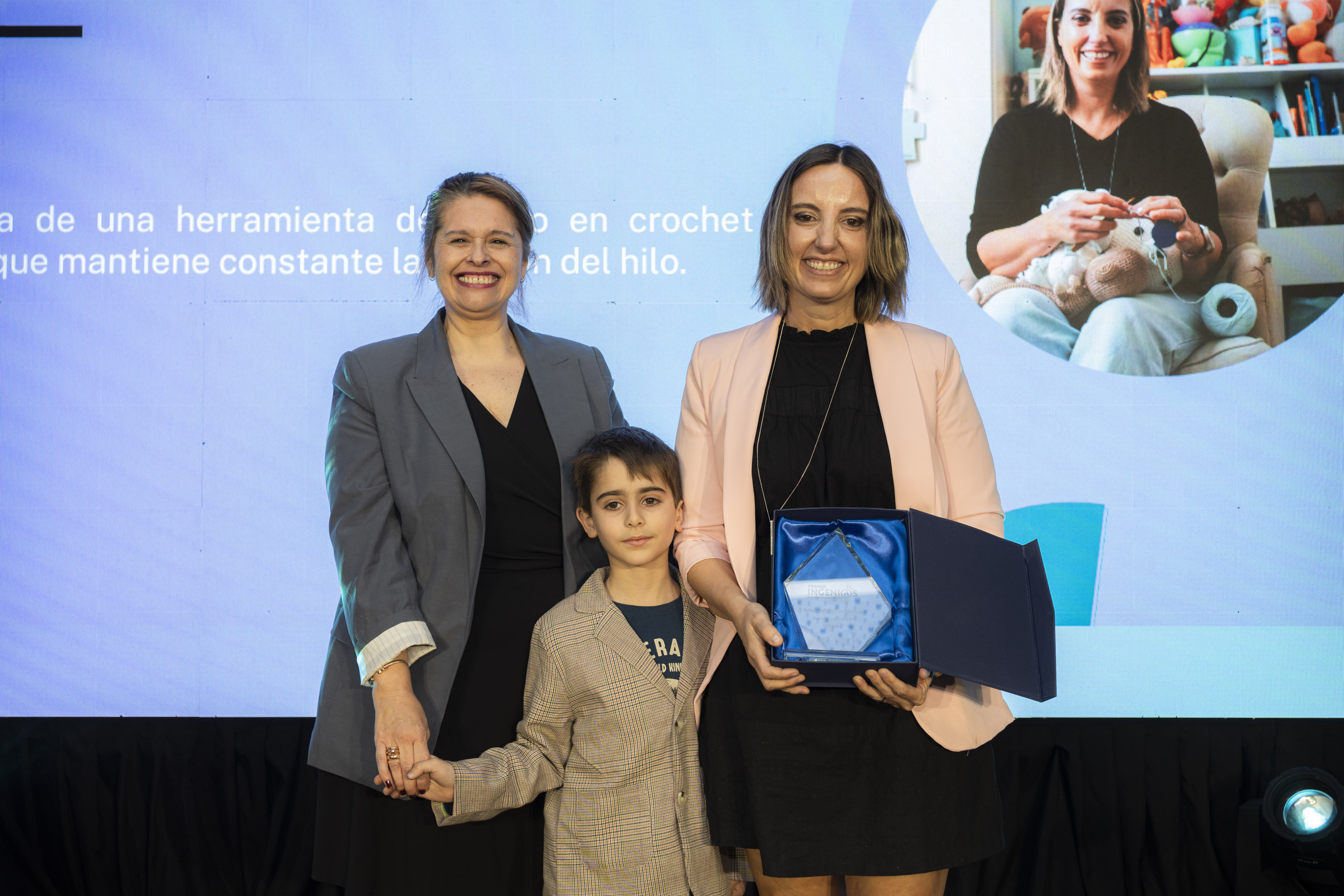Uruguayan winner of Ingenias LATAM 2025 invented tool to facilitate hand crocheting
Graphic design technician María Inés Costa Saravia was announced as the Uruguayan winner of the Ingenias LATAM 2025 award for her (inter)nationally protected invention that facilitates hand crocheting. The award is an initiative of the European Union Intellectual Property Office (EUIPO), within the framework of the EU-funded project AL-INVEST Verde IPR. Its objective is to highlight and promote female talent in the field of intellectual property (IP) and innovation in Latin America. The award ceremony took place on 4 September at the headquarters of Chile's National Institute of Industrial Property (INAPI) in Santiago, Chile, co-organiser and host of this first edition of the award focused on women inventors with inventions protected by IP rights.
The idea for María Inés' invention was born out of necessity. During her maternity leave, while crocheting for her newborn son, she began to experience pain in her hand. That's when she came up with a tool that would mechanically maintain the tension of the yarn, making crocheting easier, more comfortable and more precise. Thanks to her training in graphic design and knowledge of 3D modelling programmes, María Inés developed a series of prototypes using free software and 3D printing. The final design allows the yarn to be held, adjusted mechanically after each stitch and the needle to be supported during breaks. ‘The tool helps us avoid having to tense our fingers to squeeze our hand and make each stitch the same,’ she says. This significantly improves the knitting experience for both beginners and expert knitters.
After perfecting her invention, María Inés managed the process of protecting her invention with IP in Uruguay—with the support of Uruguay's DNPI—and then in other countries as well. She subsequently licensed her innovation to a US craft company, which took charge of mass production and marketing in the US and Canada. She has also used her invention for social purposes, knitting ‘octopuses’ for premature babies in hospitals as part of a charity project that provides therapeutic benefits to newborns. For her, knitting is much more than a technique: ‘My mark is to give newborns something handmade, with warmth and love,’ she says. Her tool, by facilitating the process and maintaining the tension of the yarn, enhances the emotional benefits of hand knitting.
In Uruguay, the wool industry has a strong economic and cultural influence. For decades, it was the country's main export and forms the basis of its textile industry. Currently, Uruguay is the world's third largest exporter of raw wool and the largest in Latin America. In 2021, exports reached US$169 million, with the European Union as the main destination (46% of the total), according to Uruguay XXI, an agency of the Uruguayan government. This industry supports many rural families, especially women artisans who preserve traditional spinning and weaving techniques. In this context, María Inés Saravia's tool not only drives innovation, but also contributes to modernising an ancestral practice that is key to local development. ‘Uruguay has a culture of weaving, and I hope this tool will help revive that tradition,’ added Maria Inés.
